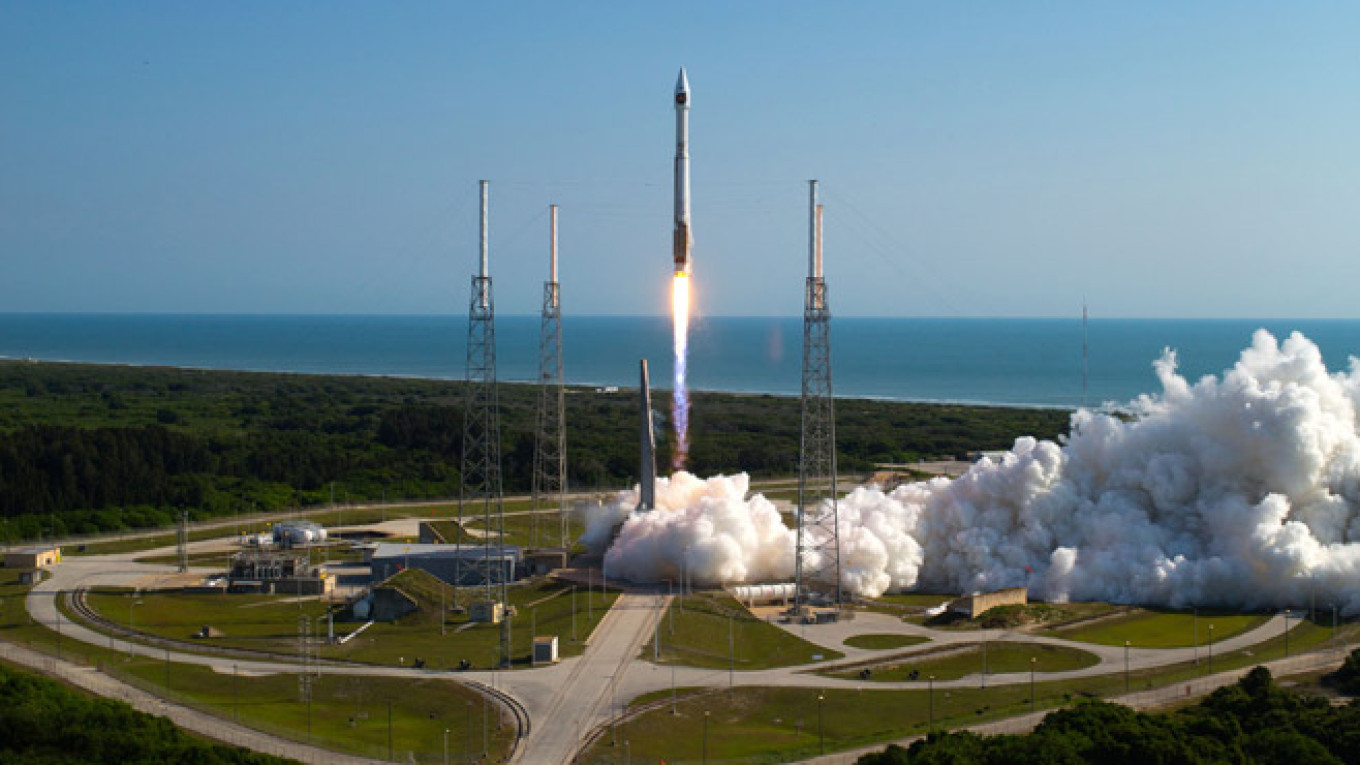Special report for MT
United Launch Alliance, or ULA, the leviathan of the U.S. Space launch industry, has answered a congressional call to end the U.S.'s dependence on Russian space technology for launches of military and intelligence satellites by signing development contracts with multiple domestic firms to develop a next-generation engine by 2019, the company said in a statement.
ULA's CEO Michael Gass beat the patriotic drum in the press release: "As the nation's steward of the launch industrial base and the only company certified to launch our nation's most critical missions, it is incumbent upon ULA to bring forward the best solutions to preserve that capability for the future," he said.
The company did not specify which U.S. engine makers it has signed contracts with, but said it will choose a concept and supplier to run with by the fourth quarter of 2014, and that the engine should enter service by 2019. Furthermore, ULA is "evaluating the technical feasibility of these new engine concepts for both private investment and the potential for government-industry investment," said the statement, which was released on Monday.
In that way, ULA appears to be answering the calls of U.S. members of congress in May to launch a domestic program to develop an all-American alternative to the Russian RD-180 engine by 2019, as the reliability of the supply chain has been thrown in to question by heightened tensions between Washington and Moscow after Russia annexed the Crimean peninsula in March.
For almost 15 years, ULA has purchased the RD-180 engine from Russia's NPO Energomash, based just outside of Moscow in Khimki, to power the first stage of the Atlas V rocket — the most-used rocket for launching valuable U.S. military, intelligence and scientific satellites and spacecraft.
Against the backdrop of the crisis in Ukraine, and the ongoing tit-for-tat sanctions dance between Russia and the U.S., the RD-180 purchases present an awkward dependence for ULA and its customers in the defense and intelligence communities.
"While the RD-180 has been a remarkable success, we believe now is the right time for U.S. investment in a domestic engine," the press release quoted Gass as saying.
In May, Deputy Prime Minister Dmitry Rogozin — the country's space and defense industry tsar — and Federal Space Agency chief Oleg Ostapenko seized the opportunity to make a point to those American officials calling for Russia's economic isolation by announcing that Moscow would limit the exports of the RD-180 for military launches.
Also in May, before Rogozin and Ostapenko announced that Russia would look to curb exports of the RD-180, the U.S. Congress called for the development of a domestic alternative to the Russian engines, which are currently unrivaled in power by anything the U.S. can muster.
Born of a government-mandated marriage between the space division of aerospace giants Lockheed Martin and the Boeing Company, ULA is in a unique industry position to lead the charge on the development of a new U.S.-built liquid-fuel rocket engine to rival the RD-180 by virtue of its central and monopolistic position in the U.S. space industry.
ULA's press release made it clear that the company will continue to work with Energomash "to evaluate the long-term feasibility of the RD-180 in competition with the anticipated new engine."
ULA has two years worth of RD-180 engines stockpiled, and has attempted to reassure the U.S. aerospace community that it could stretch those supplies longer, if necessary, by prioritizing payloads launched on the Atlas V and moving other payloads to Boeing's Delta IV rocket. The Delta IV is ULA's other rocket, which uses all local components but is less powerful than the Atlas V and more expensive to fly.
See also:
Russia and U.S. Boost Space Station Cooperation, Despite Earthly Disputes
Contact the author at bizreporter@imedia.ru
A Message from The Moscow Times:
Dear readers,
We are facing unprecedented challenges. Russia's Prosecutor General's Office has designated The Moscow Times as an "undesirable" organization, criminalizing our work and putting our staff at risk of prosecution. This follows our earlier unjust labeling as a "foreign agent."
These actions are direct attempts to silence independent journalism in Russia. The authorities claim our work "discredits the decisions of the Russian leadership." We see things differently: we strive to provide accurate, unbiased reporting on Russia.
We, the journalists of The Moscow Times, refuse to be silenced. But to continue our work, we need your help.
Your support, no matter how small, makes a world of difference. If you can, please support us monthly starting from just $2. It's quick to set up, and every contribution makes a significant impact.
By supporting The Moscow Times, you're defending open, independent journalism in the face of repression. Thank you for standing with us.
Remind me later.


